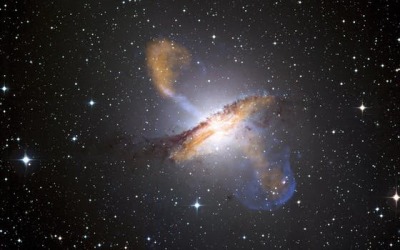Has the Webb Telescope found God?

Have you seen the first, breathtaking color composites from the James Webb Space Telescope? Almost a million miles from Earth, NASA’s incredible telescope can detect the faintest infrared light in the farthest reaches of space. The scale of vastness is off the charts, with images, says NASA, “of thousands of ancient galaxies, billions of lost stars, and trillions of long-dead planets.”
Given such an astounding scientific achievement, dare one throw even a spoonful of cold water on the ambitious project? Yet, one can’t help but wonder about NASA’s claims regarding the age of the universe. The working premise is that the farther Webb can look into the universe, the closer in time we get to the origin of the universe. Is that premise actually true?
According to NASA administrator, Bill Nelson, the Webb team plans to look back into the past to when the lights were first turned on in the universe. "We will look back to 13.5 billion years ago, only a few hundred million years after the beginning." So the hunt is on for when "the first stars were created" (via a randomly-unfolding evolutionary process) — subtly but significantly different from when "the stars were first created" (via an instantaneous act of divine creation).
When it comes to calculating distance and time, get the starting point wrong and wrong conclusions follow, as in the “police radar fallacy.” Suppose a traffic cop radars a car going 90 miles per hour. One quite logically might conclude that an hour earlier the car was 90 miles away, but it’s far more likely that the driver pulled onto the highway a few miles down the road and kicked it up to 90. In such a case, extrapolating from the 90 mph observed by radar to the conclusion that the car was 90 miles away an hour previously is logical enough, but wrong.
So, when did the expansion of the universe begin, and when did light first start hurtling away at the speed of light? Was it billions of years ago at some “Big Bang” moment when an unguided, unpurposed process of cosmic evolution first began? Or, was there suddenly and instantaneously an up-and-running universe all at once—expanding from the word “go,” complete with light in motion from one end of the universe to the other? As in, “Let there be light!”
NASA’s “Webb search” assumes that seeing greater distance indicates greater time. But what is the crucial starting point? Having philosophically ruled out any possibility of a divine Creation, NASA is left with a “police radar” correlation of distance to time which may or may not be true.
What matters most, of course, is not the age of the universe, whether billions of years or only a few millennia, but whether NASA’s “creation story” of a mindless, randomly-evolving universe is factually true. Believing that our incomprehensibly vast and intricate universe haphazardly self-assembled over time (any more than the intricately designed Webb Telescope itself) is more science fiction than science. Rather than seeing all the way back to the earliest stages of time, NASA can’t see beyond the end of its naturalistic nose.
Wondrous as Webb’s discoveries are, the story we’re being told of a mindless universe is nothing to celebrate. If the universe itself has no meaning, then neither do you and I. The more we can see, the blinder we’ve become. Time was when scientists looked up and proclaimed, “How great Thou art!” With NASA seeing nothing of God, today’s hymn is “How great We art!”
F. LaGard Smith is a retired law school professor (principally at Pepperdine University), and is the author of some 35 books, touching on law, faith, and social issues. He is the compiler and narrator of The Daily Bible (the NIV and NLT arranged in chronological order).





















